
Photo Credit:
https://99designs.com/logo-design/contests/logo-wanted-urban-ladder-112849
Four walls don’t make a home, the people living in it give life to a house and to fill people’s lives with comfort- furniture is essential. Urban Ladder is one such e-tailing company that helps people buy furniture and decorate their living space. Good furniture not only makes the home look stylish but also keeps our life organized. Paucity of space can be overcome by adding furniture that fits the space. Having good furniture makes it easy to locate household goods and also reduces the burden of cleaning and maintenance of our belongings. At Urban Ladder there are a range of products from living room to the kitchen and a variety of interior designs too. Hence, the ladder to reach the top-of-the-line furniture is Urban Ladder.
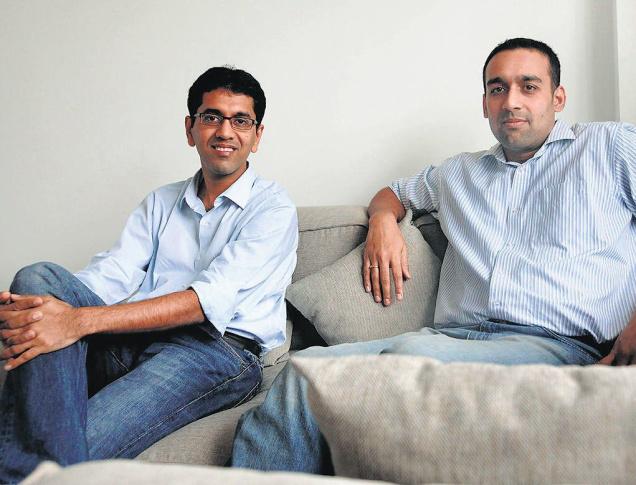
Photo Credit: http://www.thehindubusinessline.com/companies/urban-ladder-to-hire-1400-more-this-year/article6757391.ece
Quick Facts:
| Name | Urban Ladder |
| Founded | July 7th 2012 |
| Founder | Rajiv Srivatsa & Ashish Goel |
| COO | Rajiv Srivatsa |
| CEO | Ashish Goel |
| Headquarters | Bengaluru |
| Industry | Internet, e-commerce, home décor, furniture |
| Sector | Private |
| Country | India |
| Website | www.urbanladder.com |
The Formative Days Of The Product
A hunt to get quality furniture proved such a dire need for Ashish Goel and Rajiv Srivatsa that they decided to set up their own furniture portal. They came up with Urban Ladder online business that sold furniture and house decoration products and took orders online. The products have user-friendly designs, pricing in sync with others in the market and durability to match. The firm has its own logistic team for delivery and installation of its products and emphasises a lot on marketing. Most of the designs of the products are owned by the company and it maintains an end-to-end supply chain. The consumers can pay easily through cash on delivery for orders up to Rupees 25,000 or through credit and debit cards. Payments can also be made in instalments to five major banks.
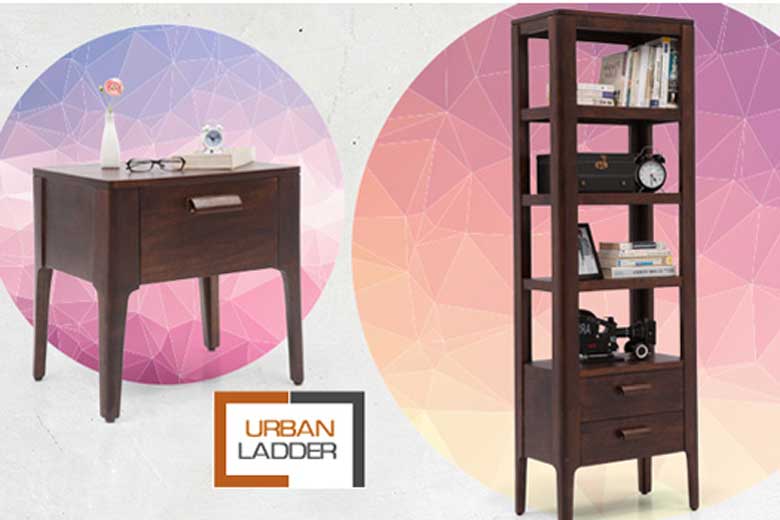
Photo Credit: http://www.financialexpress.com/article/companies/urban-ladder-raises-over-rs-300-cr-funding/62241/
The Vision To Remain On Top
Urban Ladder’s website states that their aim is to “set global benchmarks for distinctive products, consumer experiences and honest best practices”. The firm identifies customer obsession, honesty, transparency, and excellence in every small thing they do as their core values. They stress upon customer satisfaction as they consider an individual as the smallest unit to serve, irrespective of the size of the interaction. They are also not averse to negative feedback and in fact consider it necessary for self-improvement. Investors and people can be relaxed about their dealings with the company as honesty and transparency is the pillar of their value system. Urban ladder also believes in perusing the minutest of detail so as to meet the expectations of all stakeholders.

Photo Credit: http://www.christinstitute-ncr.ac.in/vision
Birth Of The E-Tailer
Urban ladder was born in July 2012. The company is headquartered at Old Airport Road in Bengaluru. Currently, Urban Ladder has a reach in 30 cities of India. The e-commerce venture has more than 4000-products and 26 sub divisions. The office of Urban Ladder is unconventional- it has swings and rocking chairs instead of the usual cubicle set up and of course, designer furniture to give it a very modern look. There are many “Breakout areas” so employees can conveniently meet for discussions and while taking a work break.
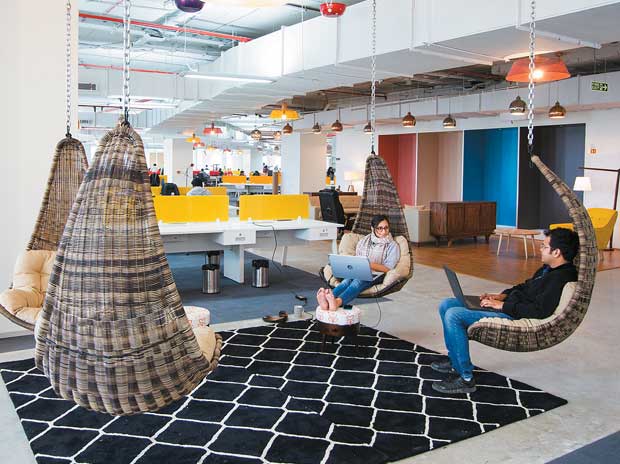
Photo Credit: http://www.business-standard.com/article/beyond-business/all-work-and-some-play-116012201527_1.html
The Founders Who Gave Shape To The Idea
The minds behind Urban Ladder are Indian Institute of Management (Bengaluru) alumni Ashish Goel and Rajiv Srivatsa. The duo has another premier institute’s name to share- The Indian Institute of Technology (IIT) Bombay and IIT (Madras) respectively. Ashish and Rajiv together founded Urban Ladder to save people from hunting around for their furniture.
At present Rajiv is the Chief Operating Officer (COO) while Ashish is the Chief Executive Officer at Urban Ladder. Ashish has previously worked with Amar Chitra Katha Media, India Book House, McKinsey and Company. Rajiv has also worked for other companies, which include Yahoo, Cognizant Technology Solutions, and Infosys Technologies Ltd, before founding Urban Ladder.
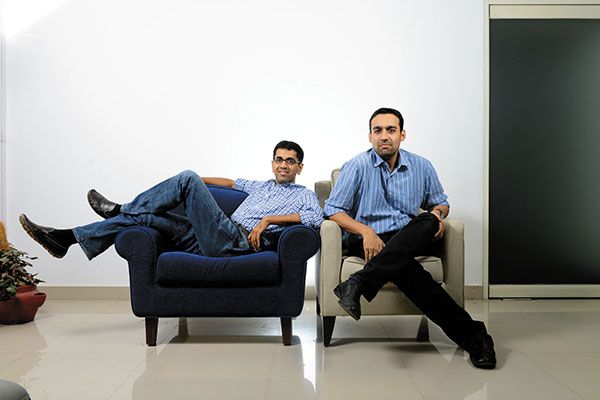
Photo Credit: http://forbesindia.com/article/work-in-progress/how-urban-ladder-climbed-atop-the-furniture-business/38349/1
Gaining The Needed Net Worth
Overall, the company has made $77 million since 2012. The e-commerce firm has a total merchandise value of about Rupees 300 crore and the company is thought to hold a value of $250 to 300 million, while the personal net worth of the founders remains undisclosed.

Photo Credit: http://yourstory.com/2015/04/urban-ladder-funding-sequoia-capital/
The Business Model To Achieve Goals
The model that Urban Ladder adapts is the typical B-C Model (Business to customer). In addition, Urban Ladder also follows the end-to-end model. The complete work of product designing, getting the furniture made and so on is managed by the firm. The company also uses its own logistics wing for the delivery of products. For the installation process to be, user friendly women workers are also part of the delivery team. This way, it has done away with middle men who compromise on quality and timely delivery. Urban Ladder caters to the tech-savvy generation through mobile apps such as Urban storage, Living Spaces and Core Catalog App. Consumers can get all the information and designs of their wardrobe on the Urban Storage application. The other applications help users visualize the furniture setting in the space required by them and have access to designs too.
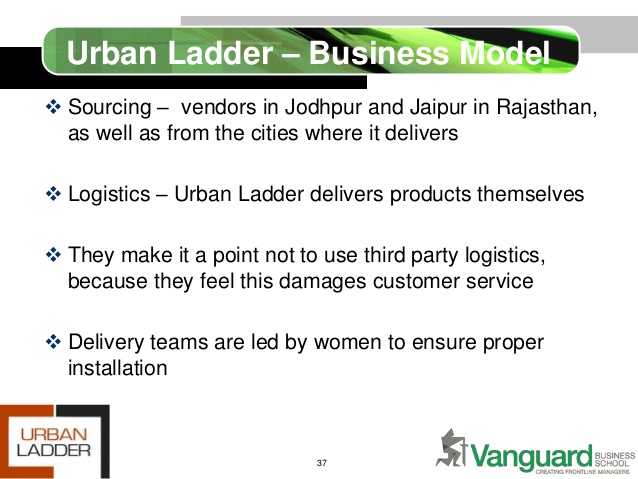
Photo Credit: http://www.slideshare.net/KaushikPKN/overview-of-etail-in-india
The Flow of Funding For The Company
Urban Ladder is being funded by American venture capital company Sequoia Capital, Asian secondary investment firm TR Capital, venture capital firms like Kalaari Capital, SAIF Partners and Steadview Capital. The breakup of funding by investors includes Kalaari Capital’s $1million, Kalaari Capital and SAIF Partners together pitched in $5mn in 2013 and Steadview Capital raised $21million in 2014.
Tata Group chairman emeritus Ratan Tata has also invested in the e-tailer. In April 2015, the firm was able to gain $50 million from its investors. In all, the company has grossed $77 million since 2012. The funds will be mainly used for technology upgradation and expansion plans.

Photo Credit: http://timesofindia.indiatimes.com/tech/tech-news/Ratan-Tata-invests-in-Urban-Ladder/articleshow/45154040.cms
The Challenges On The Way
In the beginning, hard work was the norm to form a seamless supply chain and build technology that was easy for consumers to know and access. Srivatsa said that a major hurdle while starting was that of overcoming the consumers’ habit of being face-to-face with the product and the seller.
Urban ladder started with all-India operations but had to cut down to just three cities, namely Bengaluru, Mumbai and Delhi. The e-retailer suffered a loss of 30% of the business. This happened because of delivery glitches caused by their third party logistics. After over three years in business, logistics remains a challenge for the company to expand its business to more cities. Packaging of the products and installation was also a worry to avoid damages during transit. The time factor becomes crucial when apartments have to be fully furnished within a timespan required by the buyer.

Photo Credit: https://www.hackerearth.com/urbanladder-hiring-challenge/
Success Mantra Of Urban Ladder
The unique aspect of Urban Ladder is the presentation of products along with a human silhouette. It allows buyers to visualize the dimensions of the furniture with respect to an average person’s height. This attribute became the Unique Selling Point or USP of the e-retailer and competitors also followed it. It became so popular that today it has become a necessity. The co-founders say they spent a month to perfect the artwork.
The company has also been successful because of the consumer experience. The delivery of products is promised within a day of placing the order and shipping is free of cost. In fact, the company trains its employees in logistics work for a smooth operation. It uses the social media platform to know about the consumers’s requirement and feedback on its products so that it can improvise. The product which has been one of the successful items produced by Urban Ladder is the Hamilton Nested Stool, which consists of three stools that can be stacked one under the other. Urban Ladder also allowed its buyers to test sofas in their house so that they can be assured of their requirement and comfort.
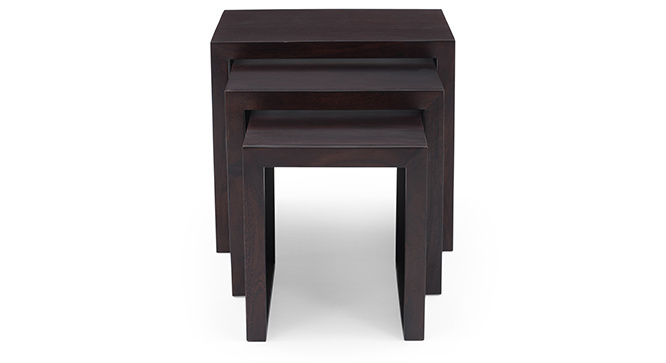
Photo Credit: http://www.123rf.com/profile_hakakatb
https://www.urbanladder.com/products/hamilton-nested-stools
Forming Partnerships Through Acquisitions
In November 2014, Urban Ladder acqui-hired BuynBrag- a Gurgaon-based furniture marketplace. According to the deal top employees of BuynBrag like co-founder Prithvi Raj Tejavath will work for the e-retailer.

Photo Credit:http://www.shopandrecharge.com/?attachment_id=85
The Threats That Need To Be Looked Into
The stiff competition in the sector is provoking firms to match each other even in the smallest of innovation. Urban ladder’s competitors in the sector- HouseFull, Pepperfry and FabFurnish are a constant threat to its business. Prices also have to be competitive to survive the competition. Another challenge is posed by Swedish furniture maker, IKEA, which may start its business in 2016 in India. Local carpenters and retailers too add to the competition in this sector.
Logistics is also a grave area of concern since Pepperfry has the maximum access in the sector with 150 cities, using its own transport. Urban Ladder on the other hand has access to only 12 cities. Fab Furnish is also using its trained delivery service called FabOne for dispatch in 7 cities. Government regulation and procedures are also an impediment in running the business.
Wide ranging products and variety, especially multipurpose pieces, has to be looked into as well, so as to fulfil all kinds of demand.

Photo Credit:http://www.slideshare.net/aakashsharma2010/presentation-36228295
Shortcomings & Controversies That Were Faced With
Consumers complained about delays in delivery, damaged articles and poor customer care because Urban Ladder had a weak infrastructure back up initially. A job vacancy for a mattress tester on social networking job portal Linked In.generated a flutter in 2016. The job required the person to have “a love for sleeping” under different circumstances to test the comfort level of the mattress. Several persons responded on Twitter but the advertisement was found to be a fake later on.
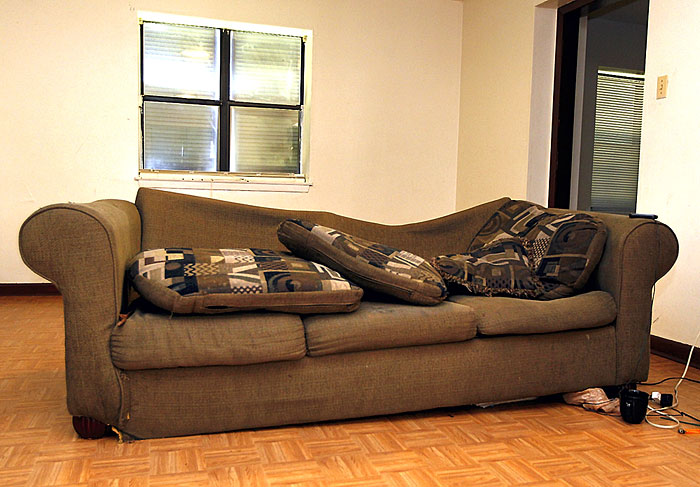
Photo Credit: https://www.domestico.com.ng/blog/
Founders Give Some Motivational Talks
Ashish Goel: https://www.youtube.com/watch?v=VvXScvGZKlM
Rajiv Srivatsa: https://www.youtube.com/watch?v=hagPv15ueXs






